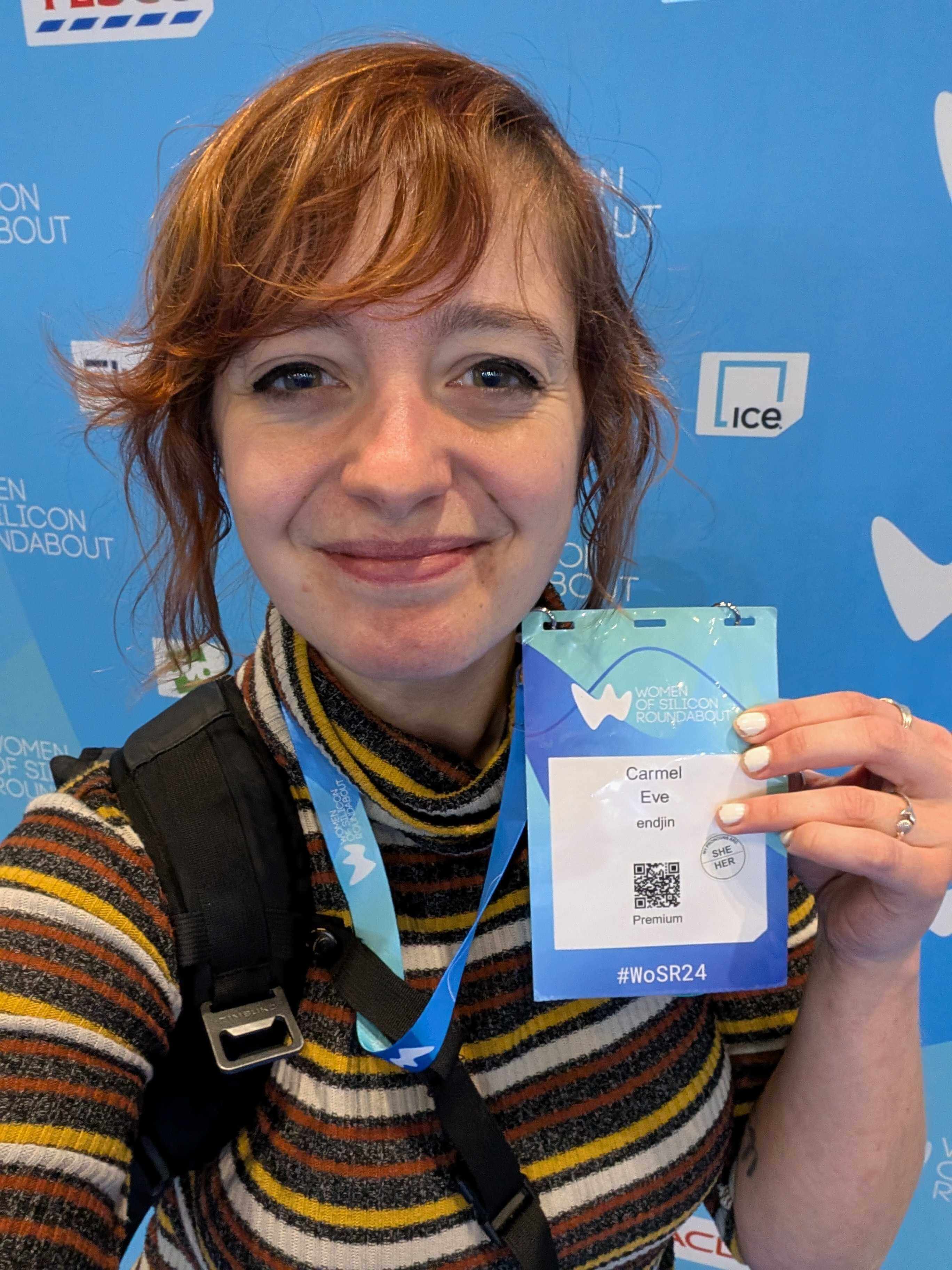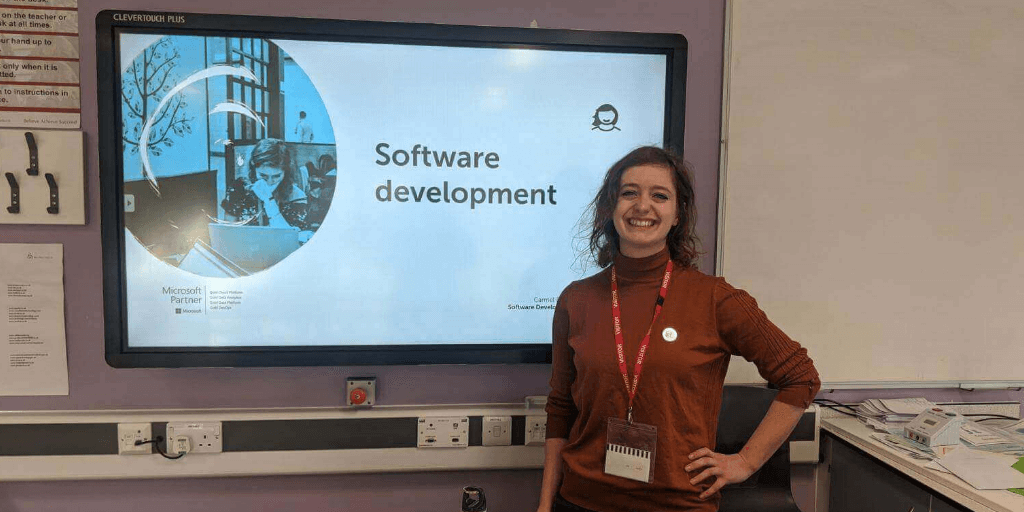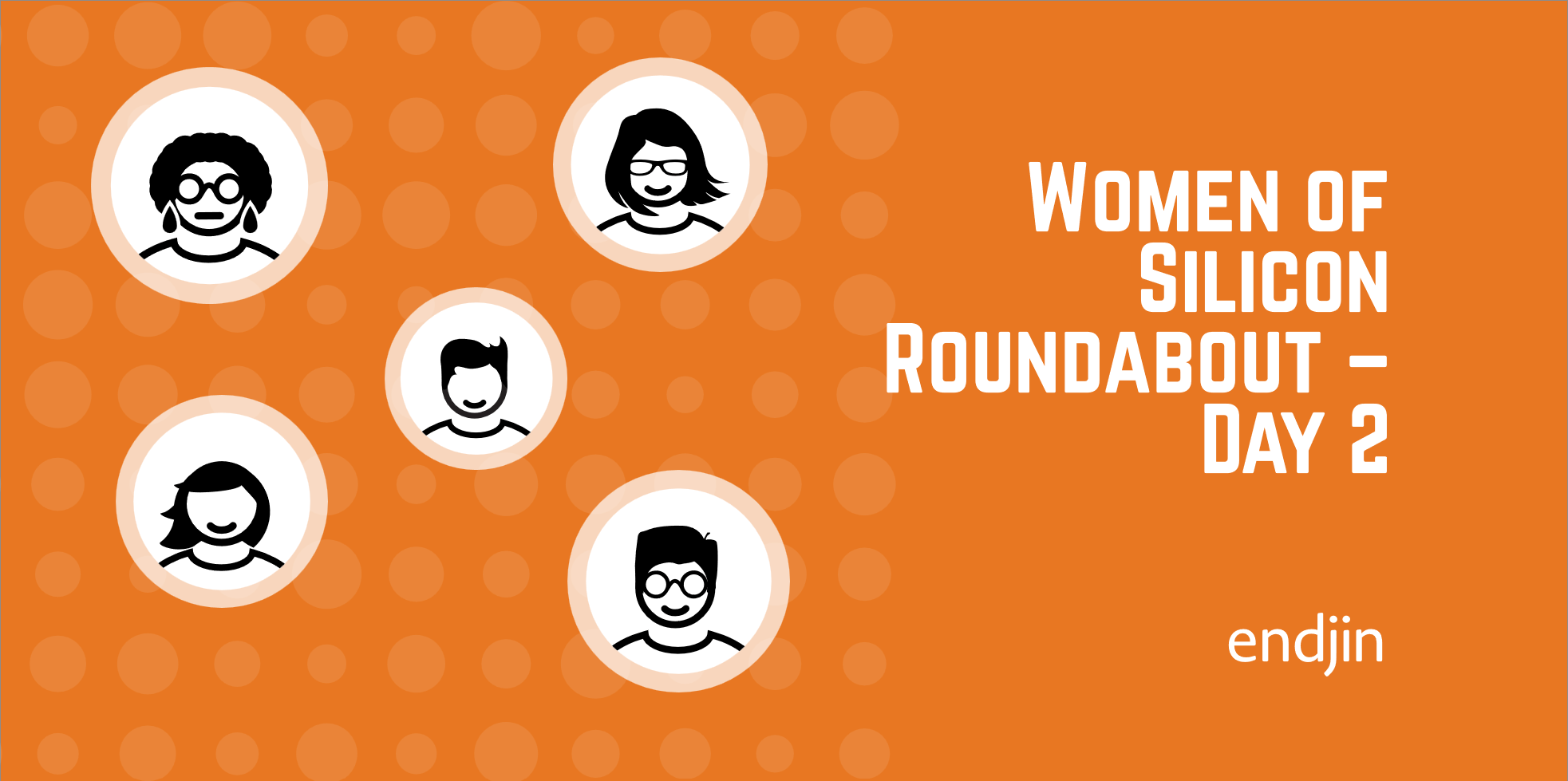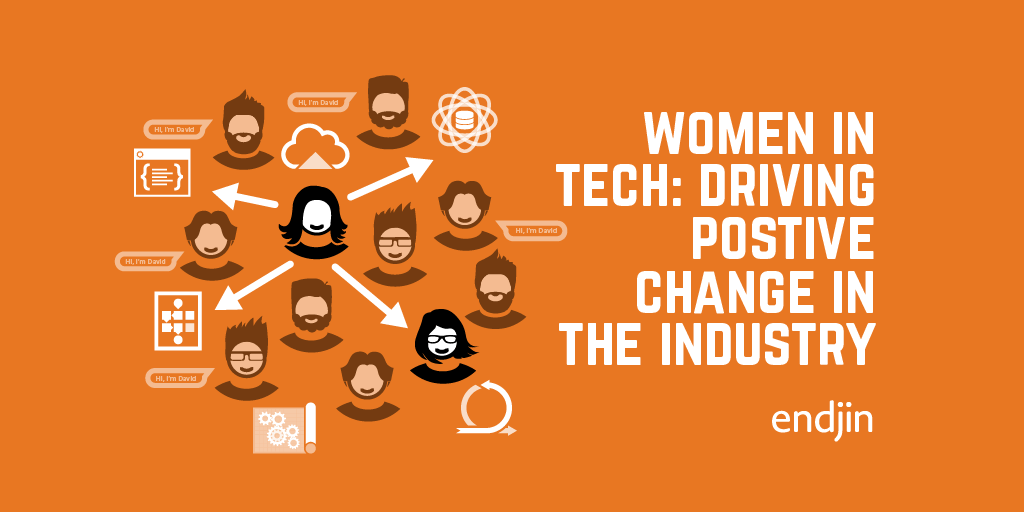Women of Silicon Roundabout: Day 1
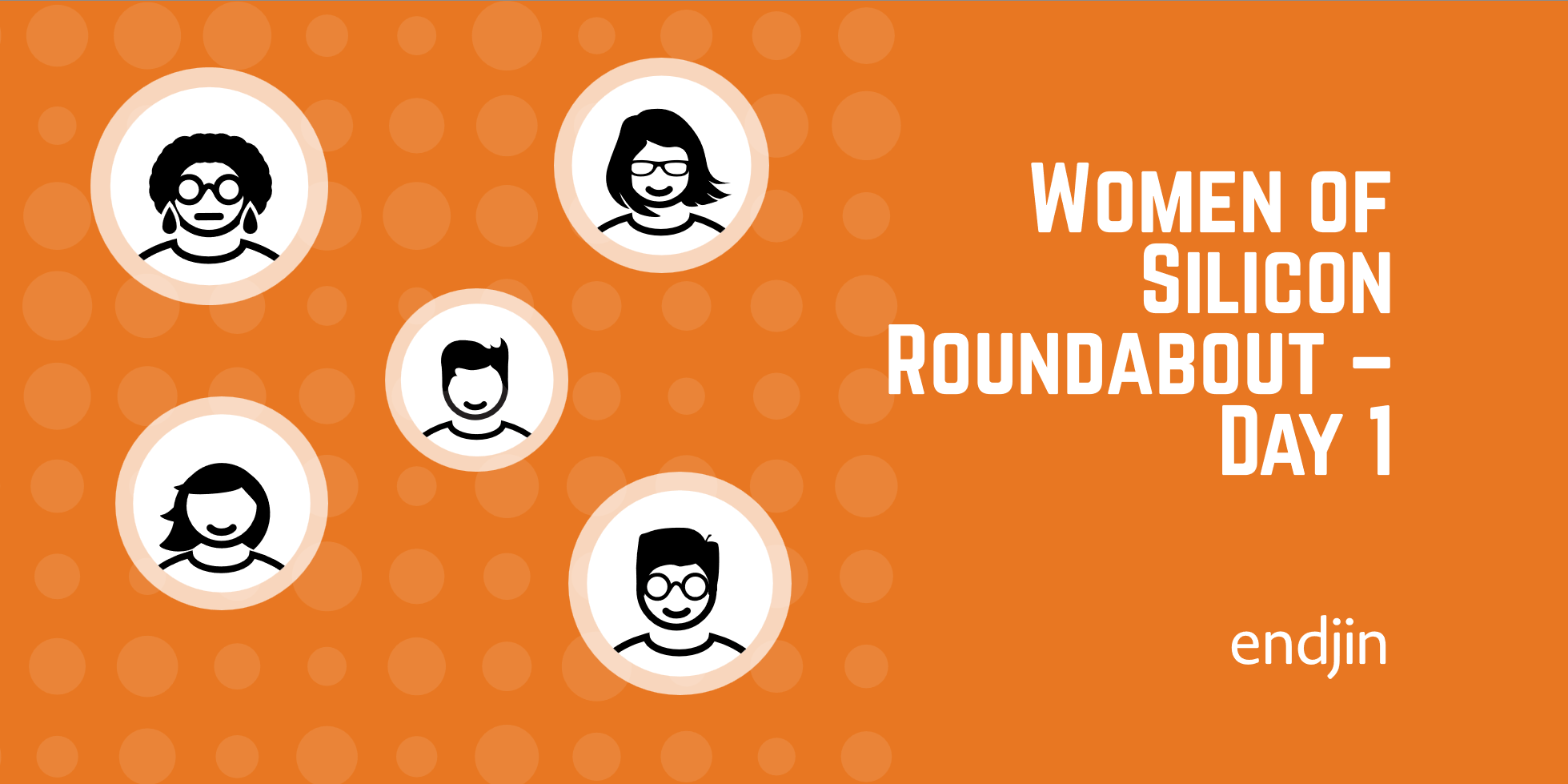
A couple of weeks ago Jess and I attended Women of Silicon Roundabout in London - the biggest women in technology event in the UK. It was a great event, with some excellent sessions and speakers, and was a breath of fresh air to be in a technology environment and surrounded by so many women.
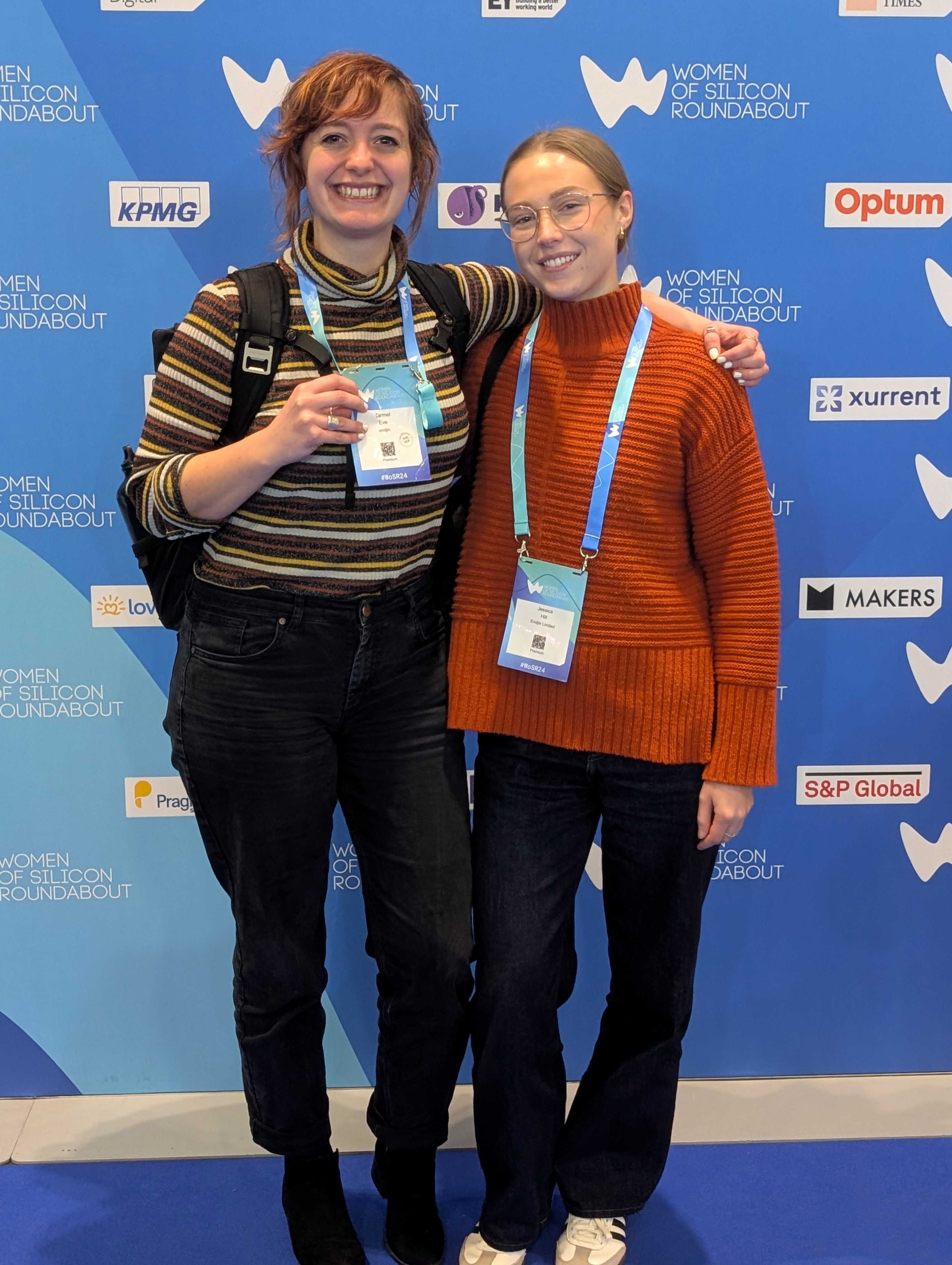
We had a lot of interesting conversations with people - it was a good feeling to have so much common ground. There were also a huge amount of things discussed that I've definitely never heard talked about at a tech conference before - including menopause, women's health, and neurodiversity. I left with a mind buzzing with ideas of how to get more involved in driving industry-level change.
Keynote 1 - “The Future of Search”
The first keynote was given by Cait O'Riordan (VP of Search, Google). She talked about AI and how they'd been applying it in Search. This included Google Lens, the rise of image-based searching, and how things have changed in recent years.
An example of this was around how they managed the search experience for the Paris 2024 Olympics. They have noticed an interesting trend – that comparative to Tokyo, and Rio before that, people were searching for much more information about the rules and scoring as events went on, instead of just the results. They also found that people were far more interested in the athletes journeys than ever before. The ability to understand this type of change in people's habits unlocks a lot of potential for pre-empting what people want/need - something that Google is attempting to do with AI.
Keynote 2 – The New Creative Era - Supercharging our Humanity
The second keynote was given by Heidi O'Leary (Partner, Deloitte).
She ran through some interesting, and global-positive, uses for AI:
- Khanmigo - Khan Academy is running a program (currently just in the US but with plans to expand worldwide) where you can get access to a personalised AI Tutor. This Tutor learns from you and your learning style and is able to tailor lessons for you – with the aim that a much wider range of people can get access to 1:1, specific, education.
- InSilicoTrials is a set of medical trials that are currently running on a drug that was designed by AI – “digitalising R&D”, where it analysed and simulated a huge range of molecules and predicted which would be successful. This is a great example of an "AI shaped" problem, where prior to this it had been done by hand - systematically trying every possible molecule. Here AI can "guess" the most likely adjacent possibilities, applying systematic "guess work" - exactly what ML is great at!
- The UN Refugee Agency has been investigating using AI to predict forced displacement over time, in different regions within Somalia.
- The development of a model that is able to detect diabetes from 10 second voice clips. This has huge implications as current testing methods for diabetes are expensive and access around the world is limited. The building of a tool that can be downloaded on any phone could enable thousands of new early detections.
But, these developments come at a cost:
- The energy used to train ChatGPT could power 100 homes for a year
- Every single ChatGPT query uses a bottle of water
- The race for AI leadership is predicted to widen existing inequalities across the world
These are factors that need to be considered as we increase our use of AI - does the benefit outweigh the cost?
She finished up by talking about how the benefits of AI are measured - not only in the actual results, but also in the freeing up of creative capacity in us as people. If we let the AI take care of the easy (but time consuming) work, then we have more time to spend on the interesting and creative problems. It gives us more time to dedicate to solving the big challenges we are facing. And this, I think, is the real potential in AI.
Keynote 3 - Women as Architects of the Future
The final keynote of day 1 was given by Nazma Ali (Head of Product, Tesco).
She addressed the problem of how we get more women into technology, and how we empower them once they're here. She talked about the importance of spreading the message that there are many different path you can take within the world of tech - not just straight programming. The spreading of this message might encourage people into the world of technology that would otherwise have considered it "not for them". She highlighted the fact that it's much more creative than many people think - this was mainly focused on UI / UX but I would actually expand this and say that writing code in any form involves quite a lot of creativity.
She also discussed the differences of men and women in leadership roles, and how at Tesco they ran separate leadership programs - aiming to face the individual challenges that hold us back. For women these challenges are largely internal - and as such need to be addressed differently.
Bridging the communication gap - presenting to mixed audiences
My next session was a workshop on presentation skills and presenting to audiences with mixed technical ability. It ran through a useful "elevator pitch" template:
- Short statement of position
- Reason for position
- Evidence to back it up
- Restate position
But, I would say the most useful part was them pointing out that women are more likely to start sentences with "I think"/"I believe" - which as it happened was exactly what I'd written on my piece of paper!
Reshaping the perspective of women in AI
I then went to a short talk about women in AI given by Naomi Pearse (Daemon), which was mostly about trends of hiring. She talked about the fact that although the number of women in AI has doubled since 2016, funding for DEI is decreasing. This is a worrying trend as it could easily lead to a plateau, or even to things getting worse (and even a plateau at the current state of things is completely unnacceptable - in my opinion!).
She also talked about the fact that, comparative to the rest of Europe, the trends in graduates in computer science subjects in the UK are awful. She showed this graph, which clearly illustrates how much work we need to do:
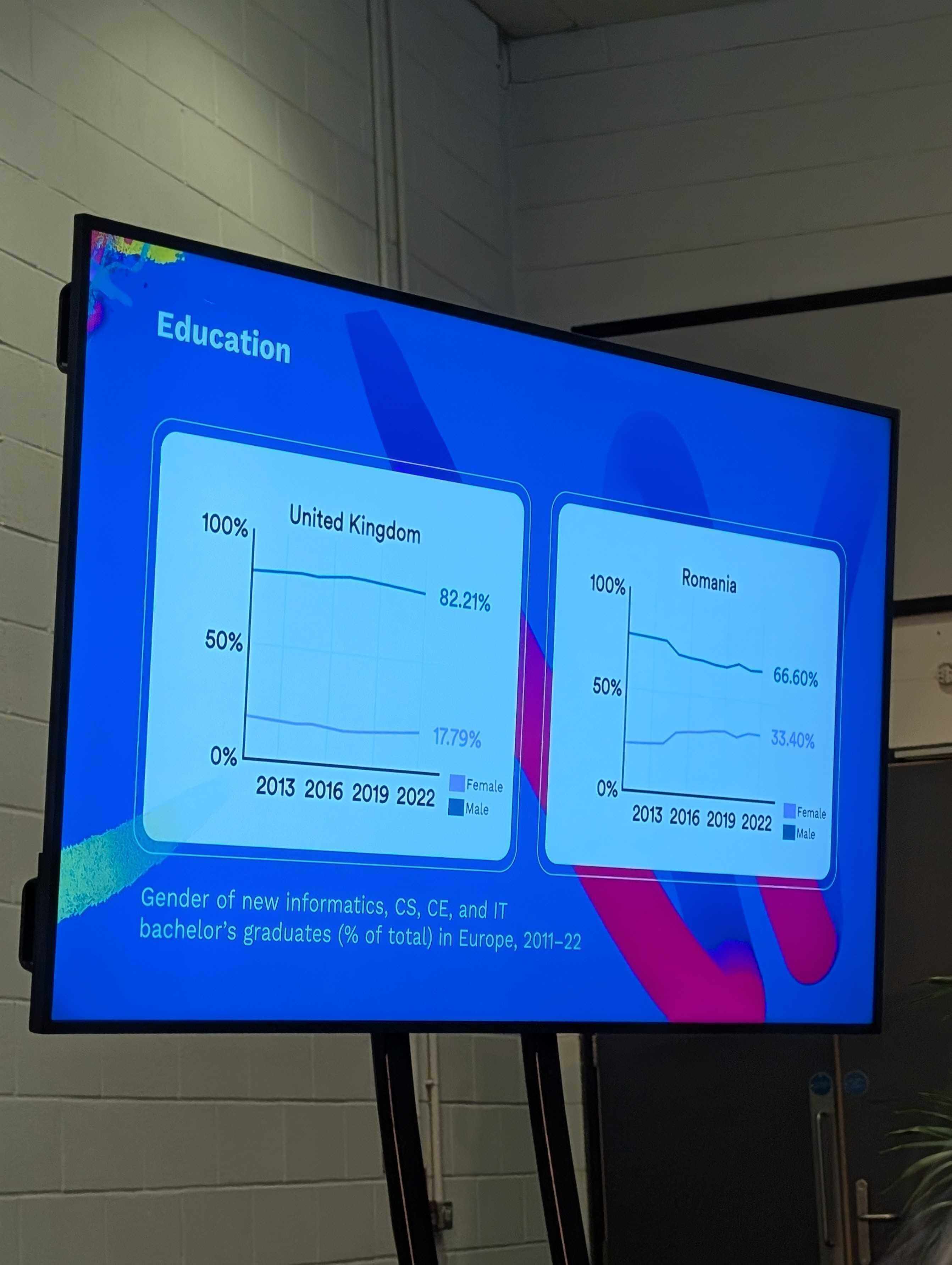
Fireside chat: Generations of Women in Tech
I then went to an incredible talk given by mother and daughter, Bunmi Durowoju and Ashia Ogunlade. They talked about their experience both being in the tech industry, how things have changed over the years, and where they see us going next.
Their talked covered many different topics, but a few stood out to me:
They had a discussion on who the onus of mentorship should be on - the mentor or the mentee. They debated whether it was the responsibility of the younger generations to seek that help and ask for what they need, or of the older generations to go out and offer that help and use their expertise to predict what people might need. I think, perhaps, it is both. But it was really interesting to hear the arguments for both sides, and understand how mentorship has developed over the years.
They also talked about how women's cycles affect their work. This is something that I have absolutely never heard discussed at a tech conference before. It felt liberating to hear it talked about on the stage in these environments. It is something that, for a lot of us, is hugely impactful - these cycles of tiredness, of energy, and of pain. It's incredibly important to understand how these cycles can impact you (and your body) in order to really show up for work (and life!). Linking to this, they also talked about menopause, how huge an effect it has on people, and how it's barely talked about - in or outside of tech.
More widely, I think it's important to acknowledge quite how difficult it is to discuss these things in a male-centric environment. I would have liked to have more of a discussion about how we approach these subjects in those environments - but there's only so much you can fit in to a half-hour talk!
Bunmi also talked about how she worried for her daughter entering this world, whether the world of tech was ready for her, and how this motivated her to try and change things for the better. At the end I went up and asked them about whether they'd had conversations about the harder parts of being in tech as a woman, prior to Ashia entering the industry. It's something that I was personally quite interested in, as someone who also has a parent in tech (though in my case my dad!). He did talk to me about it when I was first considering entering the technology industry, and it is a hard line to tread because you don't want to worry or discourage young women, but you also don't want them to arrive unprepared.
Beyond the checkbox: Building inclusive tech spaces and pathways
The next session was given by Renee-Louise Nzegbulem and was around how we can build inclusive tech spaces for diverse talent. She talked about some of the barriers to true diversity in tech:
- Lack of mentoring and networks
- Hiring and promotion bias - an awful statistic from LinkedIn showed that 29% of Black professionals are less likely to be promoted than their white counterparts
- Unwelcoming company cultures meaning that we lose some of the, already low numbers of, diverse individuals from the industry
She then talked about some of the proven strategies for increasing diversity:
- Bias training and inclusive leadership: a study by Deloitte found that companies are around 1.8x better off financially if they prioritise bias training and inclusive leadership
- Mentorship and sponsorship programmes: A study by Harvard Business Review revealed that companies prioritising these programs can increase promotion rates in these under-represented groups by 30%
- Employee Resource Groups (employee-led groups that promote inclusivity in the workplace): Bain & co found that employees that were a part of the resource groups had higher job satisfaction and a sense of belonging
- Measurable diversity goals: Microsoft attach Exec bonuses to inclusion and diversity outcomes. Though, exactly how these things are weighted and what impact it has had is reasonably unclear from what I can see online! But, in theory, this is a great way to enforce the prioritisation of these goals.
- Hiring diverse talent - CodeFirstGirls, CodingBlackFemales, and many more organisations can help you achieve this:
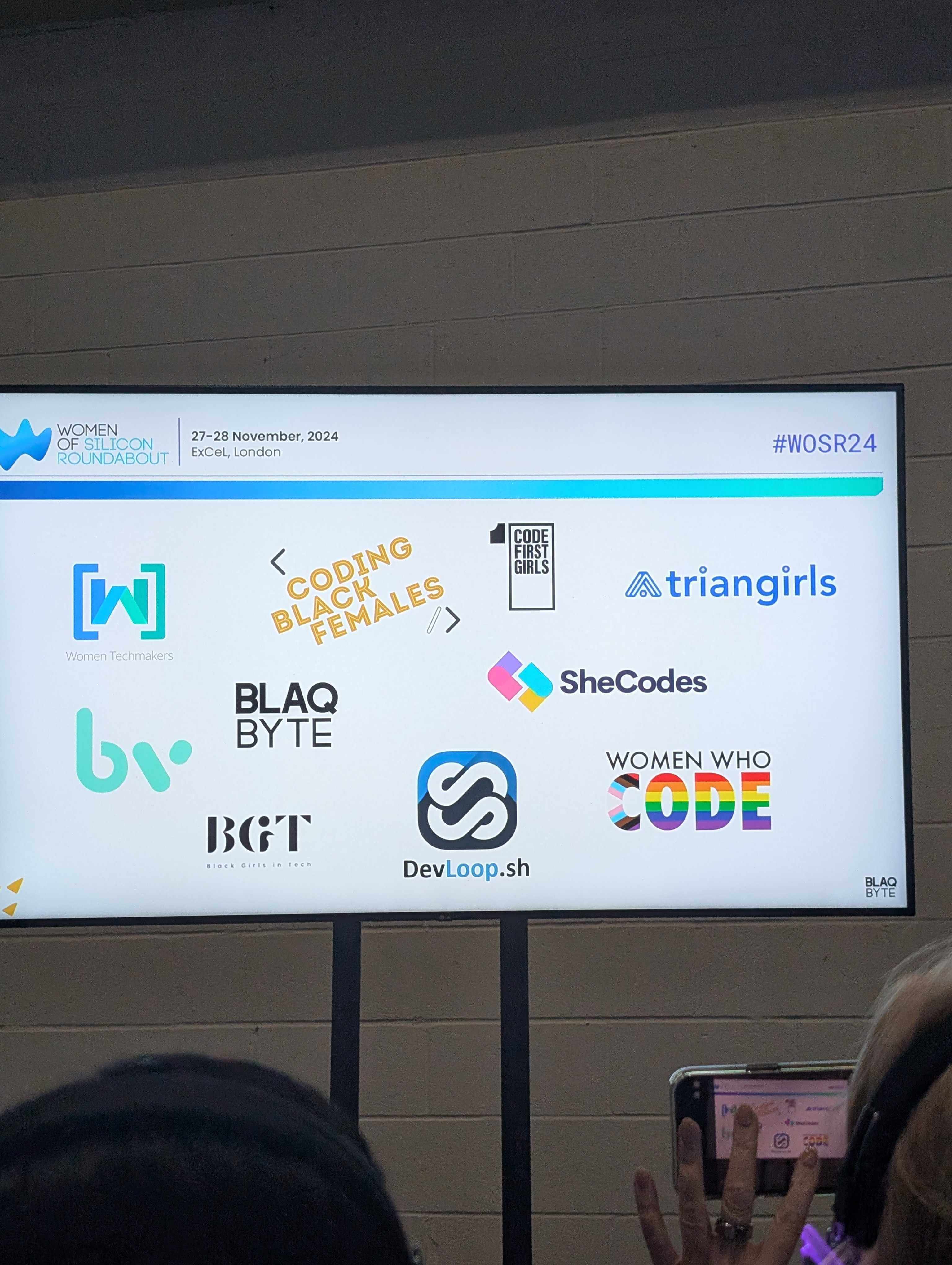
And finally touched on the importance of proving to businesses that the investment is worth it:
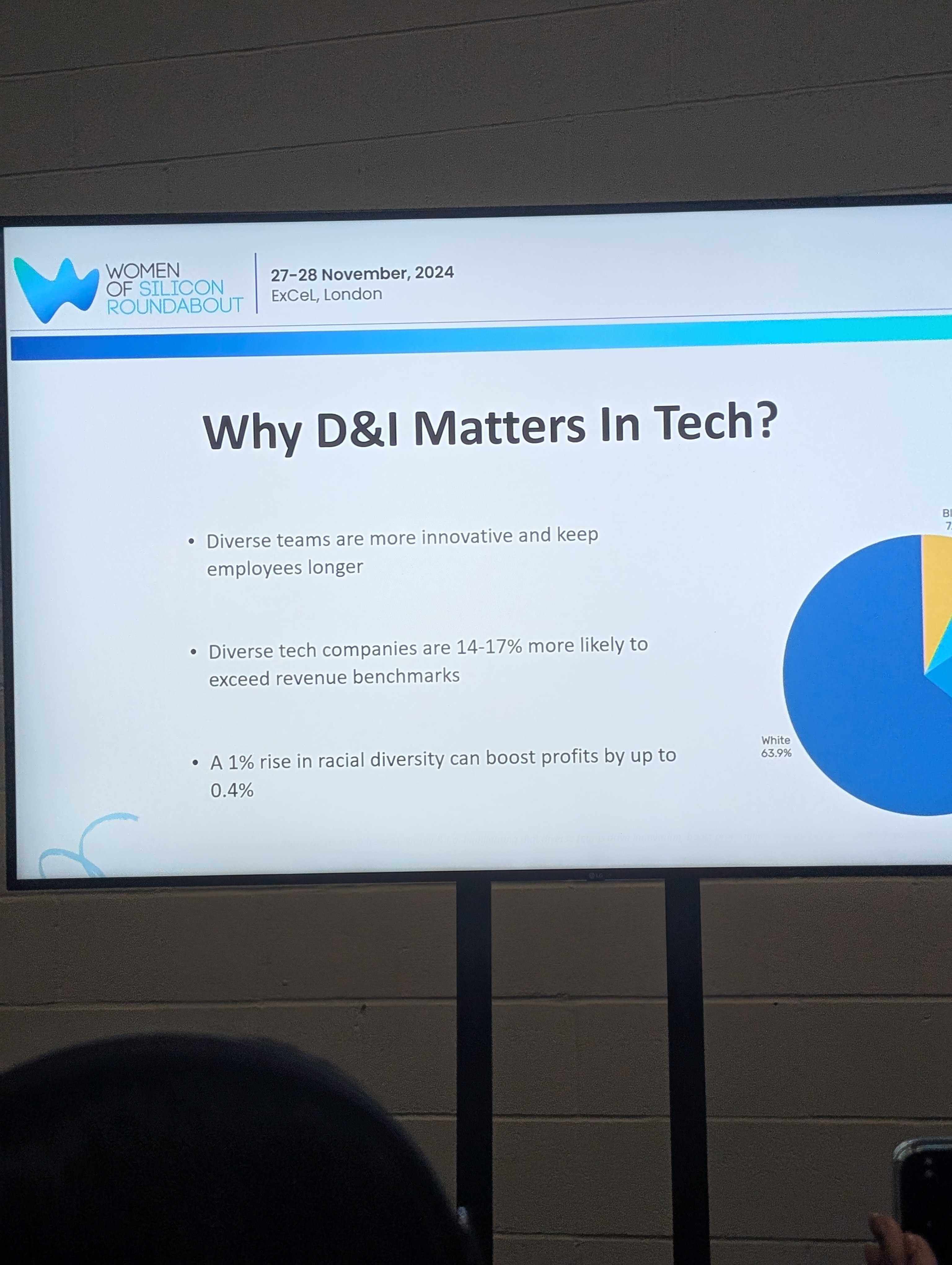
You can listen to her talk here.
In Conclusion
It was a great day, I saw some really interesting and inspiring talks, and was just overall a great experience to be surrounded by so many women in the industry.
I would say that it is an interesting question, because though it was an incredible experience to be surrounded almost entirely by women, I couldn't help but feel it was a bit of a shame that we were the only ones hearing the messages. There were so many talks about how leaders can support women, LGBTQIA+, people of colour, and neurodiversity in the workplace, and it feels a little like some of these things were being shouted into an echochamber.
I have often thought this at other conferences, where there are significantly more men that women - the only parts of the conference where women are not outnumbered are in the talks around DEI (Diversity, Equity and Inclusion). The issue with this is is that women are, in general, more likely to be thinking about and know this stuff already. Those who really need to hear it are much less likely to attend the talks.
Chiefly in this, there is a need for a separation of:
- Spaces for under-represented people in tech
- Discussions and information around diversity and inclusion
Both of these are incredibly important, but the conflation of the two means that crucial messages and information aren't reaching everywhere that they are needed.
I'm not sure how is best to address this issue at a conference level - perhaps by highlighting that for events such as this, though they are "women in tech" events, allies are welcome. Or perhaps by making the sessions available online so that those who didn't attend the conference are still able to learn from them. But, for the men who are attending tech conferences around the world, I strongly encourage you to seek out some of the talks around inclusion at your next event! It's so important to find a way to spread these messages outside of the places that they are already lived and felt.
Thank you to everyone that spoke, and I hope I shall see some of you again next year. Keep an eye out for my write up of Day 2 - which was filled with more inspirational women, and a bit more deep technical content!
